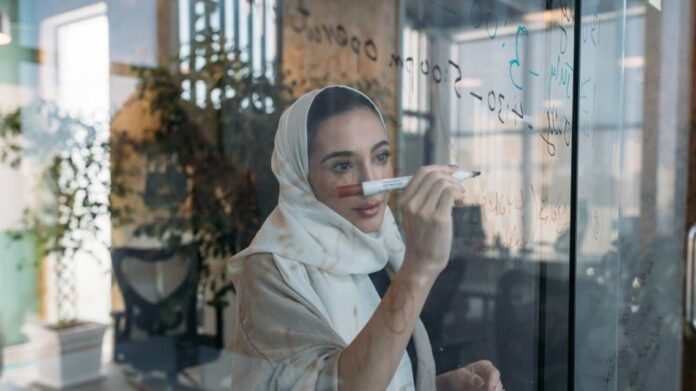RIYADH: The KSA sees itself as a leading player in the vast and growing smartphone app race.
Saudi ‘buy now pay later’ fintech app Tamara (with 120 employees) raised $110 million in debt and equity funding from Checkout.com earlier this year.
And food delivery app HungerStation (founded in Dammam with over 1,400 employees) merged with Foodpanda, owned by Germany’s Delivery Hero, for an undisclosed sum in 2016.
With smartphone penetration at over 80 percent of the population, positioning it at number three globally, “Saudi Arabia dominates the region’s mobile app use because of its size and its purchasing power”, Imad Jaroudi, CEO of Jaroudi Media (a digital marketing firm based in Riyadh, Manama and Beirut) told Arab News.
While tech might have been a luxury before COVID-19, it soon became a necessity
Kholoud Al Mohammadi, a startup mentor and Investment Manager at FII Institute
“The majority of its population is under the age of 40. These are young and talented individuals who are quick to embrace the new tech era and want to be part of it.”
The coronavirus pandemic has been an additional driver of app use in Saudi Arabia as it was across the world.
“Sectors normally slow to embrace tech, such as government and healthcare, were compelled by the pandemic to deliver their services online”, says Kholoud Al Mohammadi, a startup mentor and Investment Manager at FII Institute. “While tech might have been a luxury before COVID-19, it soon became a necessity.”
Most Saudis can attest to that, as public service apps such as Covid passport app Tawakkaina and health services app Sehhaty became an essential part of daily life — in addition to the host of retail, gaming and social media apps already present on most smartphones.
Market research firm Grand View Research values the global mobile app market at over $170 billion and projects growth at a compound annual growth rate (CAGR) of 11.5 percent between 2021 and 2027.
But there are some 9 million apps available worldwide and counting fast – so how does a Saudi app developer stand out from the crowd and establish a new brand in such a competitive environment?
It requires a lot more than just a good idea. Initial development costs run from SR60,000 to SR150,000 — with some e-commerce apps going into the millions. But the creation of the app is only part of the story, and many would-be innovators are not fully aware of that.
“If someone asks me to help develop an app, I’ll first see if it is simply replicating many other apps”, says Jaroudi. “After all, why spend time and money on something that is already out there? Then I will ask about the feasibility study. Someone might come up with a good concept — but they want to embark on it right away, without any market research or thought about budgeting and management.”
If someone asks me to help develop an app, I’ll first see if it is simply replicating many other apps
Imad Jaroudi, CEO of Jaroudi Media
Khurram Ali, CEO of Riksof (a Gulf-wide app developer), agrees, stressing that the viability of an app “is mainly about execution. You start off with an idea – this is a problem I see and this is my solution. But the execution is how you take your idea to the market: Obviously having a fast and streamlined app that provides clear value – but then handling customer service, managing cashflow and raising the funds to carry you through to the point that your product takes hold.”
No innovator will have all of those skills, or that ability to multitask — therefore an app developer must have a strong team from the outset, and that includes IT talent. For a while it may be tempting to outsource all development to a low-cost region such as India or Pakistan, this poses a risk of the management team not fully understanding their own product – a painfully evident shortcoming when seeking further investment.
Even with sound management in place, a solid feasibility study and business plan, and a unique offering that delivers real value, an app could still receive negative feedback if its functionality is below par in the early stages.
Ali is reassuring on this point. “It happens all the time”, he says. “You get poor reviews and improve the app based on that. It’s just not possible for the first release to be perfect – but if you address that negative feedback, you can improve your solution and grow your business. Someone might install and then delete your app – but install it again six months later if it’s recommended by a friend.”
And based on customer feedback, the app can evolve in unexpected ways – so flexibility is key. For instance, Dubai’s Careem – a regional unicorn – started as a corporate car booking solution, and morphed into taxi services, then into food delivery. Careem (with over 1000 employees, not including driver ‘partners’) was acquired by Uber in a $3.1 billion transaction in 2019.
The app space is no doubt tough to crack — in Saudi Arabia as anywhere else. But this is a rapidly expanding online industry, worth many billions. With a smart approach, and with lessons learned from others’ successes and challenges, there is still plenty of room for innovative new players.

